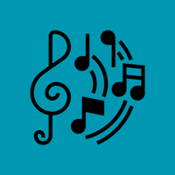
Philip Glass
Composer, Librettist
Biography
Philip Glass
Philip Glass (b. January 31, 1937) is one of the most influential composers of the late 20th and early 21st centuries, renowned for pioneering the musical style commonly known as minimalism. Born in Baltimore, Maryland, to Jewish immigrant parents, Glass grew up surrounded by music through his father’s record store, which exposed him to a wide range of Western classical works, as well as non-Western traditions. He studied violin and flute as a child before turning to composition, earning a degree from the University of Chicago at the young age of 19, and later studying at the Juilliard School in New York.
Glass’s early career included intensive study with French pedagogue Nadia Boulanger and work as an assistant to sitar virtuoso Ravi Shankar, whose influence sparked Glass’s fascination with additive rhythms and non-Western musical structures. These experiences helped him move away from the twelve-tone serialism dominant in mid-century composition and toward a highly distinctive style based on repetition, gradual change, and hypnotic rhythmic drive. By the late 1960s, Glass was part of a generation of composers, including Steve Reich and Terry Riley, who challenged the prevailing academic norms and created what came to be called minimalism, though Glass himself prefers the term “music with repetitive structures.”
In the 1970s, Glass founded the Philip Glass Ensemble, a group of amplified instruments that became the main vehicle for his music’s early dissemination. Landmark works from this period include Music in Twelve Parts and the trilogy of operas created with director Robert Wilson, beginning with Einstein on the Beach (1976). Einstein redefined opera as a form, with its non-narrative structure, extended length, and mesmerizing score, positioning Glass as a revolutionary force in contemporary music. His collaborations with theatre artists, choreographers, and filmmakers further expanded the reach of his style.
Throughout the 1980s and 1990s, Glass developed an expansive operatic and symphonic output. Operas such as Satyagraha (1980), based on the life of Gandhi, and Akhnaten (1983), about the Egyptian pharaoh, cemented his reputation for combining historical or spiritual subjects with his signature sound world. Later works such as Galileo Galilei (2002) continued this trajectory, exploring figures of science and faith. Glass also composed symphonies, concertos, and string quartets, alongside an extraordinary body of film music, including acclaimed scores for Koyaanisqatsi (1982), The Hours (2002), and Notes on a Scandal (2006).
Glass’s music has had enormous crossover appeal, reaching audiences far beyond the concert hall. His collaborations with artists such as David Bowie, Paul Simon, and Laurie Anderson expanded his influence into the worlds of rock, pop, and experimental performance. He has been celebrated for bringing contemporary classical music to wider audiences, helping to bridge the divide between avant-garde art and popular culture. His instantly recognizable style—marked by repetitive motifs, shifting harmonies, and a sense of meditative momentum—remains a defining sound of modern classical music.
Today, Philip Glass is recognized not only as a prolific composer but also as a cultural icon whose work has reshaped how audiences understand opera, film music, and contemporary composition. He has received numerous honors, including the National Medal of Arts, the Glenn Gould Prize, and the Kennedy Center Honors. Even into his later years, Glass continues to compose and perform, remaining an enduring force in music whose legacy is inseparable from the history of late 20th-century modernism and beyond.
Known For
Shows
Shows associated with Philip Glass
Songs
Songs from shows associated with Philip Glass
Videos
Videos associated with Philip Glass
Quizzes
Quizzes associated with Philip Glass
Learning Modules
Learning modules associated with Philip Glass
Additional Information
N/A